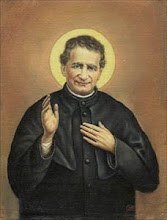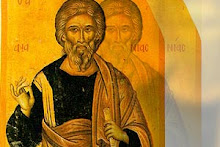Bishop Robert Finn and the Catholic Commitment of Catholic Educators
A Covenant of Faith
Catholic Schools exist to reveal and expose the Catholic faith. In a deeper sense they serves as vehicles for the promotion of all students to develop an intimate relationship with Jesus Christ. This statement serves as the premise behind Bishop Robert Finn's recent article in his Diocesan newspaper (Catholic Diocese of Kansas City-St.Joseph) the "Catholic Key" on the Catholic Commitment of all Catholic schools and Catholic school teachers. Two main areas of focus in his article are directed towards the teachers who instruct, and the parents who serve as the primary educators of their children. This article will concentrate on the teachers commitment.
The identity of a Catholic school rests on the active vibrant practice and open expression of Catholicism in every component of a Catholic School. As the identity of Catholic schools can be effectively argued has waned throughout the last forty-years, great efforts have been made through the catehetical movement within the Church e.g. the publication of the Catechism of the Catholic Church (1992), the development of the USCCB Ad-Hoc committee that oversees the use of the Catechism in religious education textbooks, the publication of the General Directory for Catechesis (1997).
These valuable resources do indeed assist in the auuthentic transmission of the faith. However, they are of no use, if those who have been placed in positions to transmit the Deposit of Faith do not faithfully or effectively use them.
Hence, Bishop Finn is calling on all Catholic teachers to make a firm Catholic commitment as authentic guardians of the faith to the children whom they instruct. As part of the teachers contract within the Catholic Diocese of Kansas City-St. Joseph, each teacher will know and understand that by signing their contract they are effectively adhering to the teachings of the Catholic Church. This Catholic commitment statement signifies that each teachers knows and understands the teachings of the Catholic Church and the fielity to uphold these teachings as revealed to us via Sacred Tradition and Sacred Scripture and carefully formulated through the Catechism of the Catholic Church and the Code of Canon Law.
What this statement reflects is the teachers commitment to actively practice the faith and faithfully transmitt that faith as a witness of the Gospel. Pope Paul VI reminded us so clearly when he wrote Evangelii Nuntiandi(1975) the famous creed for all Catholic educators: "Modern man listens more willingly to witnesses than to teachers, and if he does listen to teachers, it is because they are witnesses." (41)
This type of statement should be nothing knew to anyone who knows and understands what the Church of Jesus Christ has always asked of its faithful. The Apostles knew all too well not to stray from what has been handed down to them i.e. the Deposit of Faith where the faithful carefullly received authentic instruction (Acts 2:39-42) St. Paul reminds us of the fidelity required of all God's children in Col 3:1-3 to set our minds on the things that are above, not on the things that are on earth.
The journey will continue, and the Church will continue to educate her children in the intimacy of Jesus Christ throughout all its instructional rigor and vigor. Let us pray for continual renewal of Catholic education for all and especially for the brave witness of Bishop Robert Finn.






